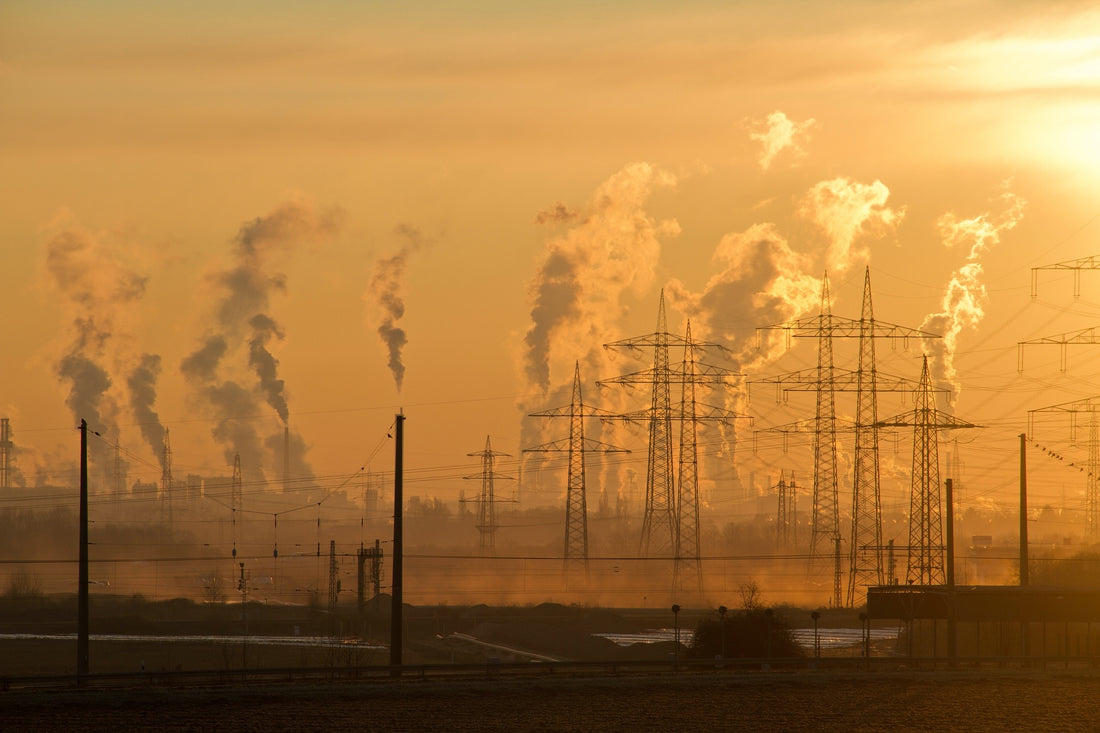
What pollutes more organic cotton or recycled polyester?
Share
This has always struck me as a very good question. And how to know. The question is, are we only talking about pollution or environmental impact? For this, the first thing we have to define is what is the environmental impact.
The term environmental impact , defined according to a Master's Final Project at the UPV where they study the Environmental Impact Assessment System, is defined as the alteration that human activity introduces into the environment. And here it is important to distinguish between said alteration and the effects that it has on the environment and human health.
Before getting into analyzing the fabrics, we are going to differentiate the 3 types of environmental impacts that are classified as:
- Impact of Over-exploitation : It is about using more resources than the earth is capable of proportional and they are not renewable. Like oil or water. Scarce resources.
- Impacts of Occupation/Transformation: When a space that is discordant with that ecosystem and land is physically occupied. They can be buildings on the coast, factories, oil companies...
- Pollution impacts: It is produced by the emission of materials or energy derived from an activity. And its dispersion or transformation in this medium. Here we talk about CO2, toxins emitted into the sea...

Let's analyze. Let's see if it doesn't get hard.
Polyester is a synthetic material . A petroleum derivative. So.
- You don't need water to grow it. 👏🏻
- You need oil. (Impact of Overexploitation).
- Toxics are used in its manufacture (pollution impact).
- The extraction of oil requires the installation of oil companies (Impact of Occupation).
- It needs a lot of energy for its production. 18.6 Kwh are used , this translates into 7.04 Kg of Equivalent Units of CO2 . (High pollution impact)
At the moment, the only positive thing about polyester is that it does not need water. But polyester can be recycled. Eye.
Recycled polyester no longer needs to extract the scarce oil resource again, therefore:
- You don't need water 👏🏻
- You don't need new oil. 👏🏻
- Prevents other plastics such as bottles from being thrown into the sea. 👏🏻
- In its manufacture , toxic substances are still used that are released into the sea and the environment (pollution impact).
- They still need a lot of energy to make. 13.8 Kwh are used, which means 5.31 Kg of CO2 equivalent released into the atmosphere).
Therefore, according to this, between polyester and recycled polyester, the recycled one is better. ♻️
Let's go to cotton . Both cotton and organic cotton need approximately 150 days to grow. And it is typical of warm areas. Here we are already talking about a natural fabric:
- You need 11.28 liters of water for every gram of cotton grown. Its alot. Very much. (Impact of overexploitation)
- Highly polluting pesticides and pesticides are used. 110g of insecticide are needed for each t-shirt made of cotton (pollution impact).
- Toxic elements that are sent to the sea (pollution impact)
- It needs half the energy of polyester for its manufacture, approximately 9 Kwh, or equivalent to 3.3 Kg of CO2. 👏🏻
If we eliminate the pesticides from this cotton, we are left with organic cotton, which, according to a study carried out by Textile Exchange, and which is collected very well in this Ecoinventos post:
Organic cotton :
- It needs 90% less water than cotton , 1.28 liters of water for every gram of cotton grown. 👏🏻
- Use natural pesticides . 👏🏻
- It does not use toxic elements in its production and manufacture. 👏🏻
- It needs 60% less energy than cotton, approximately 3.6 Kwh, or 1.32 Kg of CO2 equivalent. 👏🏻
Here is a summary table with all the data:
| Polyester | Recycled Polyester | Cotton | Organic cotton |
| 18.3 kWh | 13.8 kWh | 9 Khw | 3.6 kWh |
| 7.04 Kg CO2 equivalent | 5.31 Kg CO2 equivalent | 3.3 Kg CO2 equivalent | 1.32 Kg CO2 equivalent |
| 0 liters of water in culture* | 0 liters of water in culture* | 11 l water/gr in culture* | 1.1 l water/gr in culture* |
Table 1. Summary of the environmental impact of cotton vs. polyester.
*This post does not take into account the water used for production, in this case the water footprint of polyester is high.
In summary:
Organic cotton needs less energy to produce, less water, it contributes much less to greenhouse gases and therefore to the acidification of water. Also, organic cotton underwear IS HEALTHY!! And any organic cotton fabric. You can read the post that talks about the health benefits of organic cotton underwear or the impact of polyester on health
What else can we do? Well, change our mentality. Consume less, reuse, buy only what we need. And that goes against our economic interests, not our interests in favor of health, the environment and quality of life. Take good care of yourselves. If you are interested, we talk about the impact of consumption in this post.
